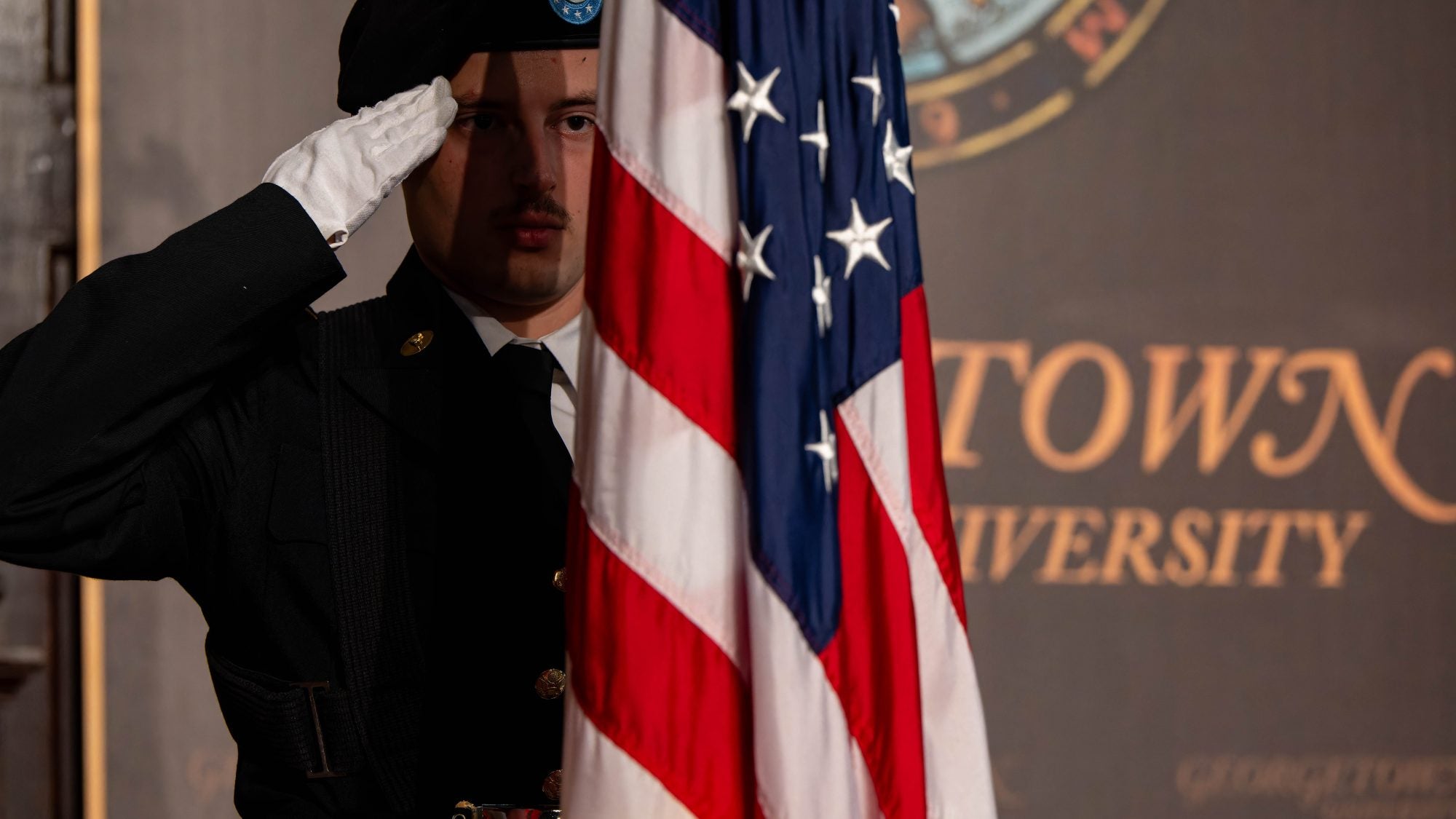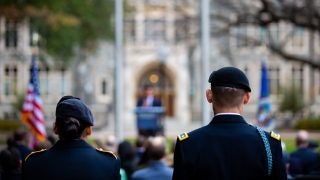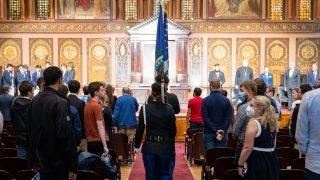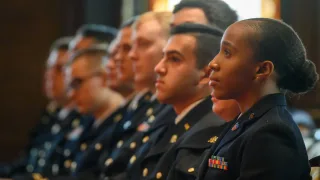Stephan Murphy, a U.S. Army veteran who has spent the last three and a half years supporting military-connected students in higher education, has joined Georgetown as director of the Military and Veterans’ Resource Center (MAVRC). The MAVRC is a university support center that provides resources to members of the military-connected community to enable them to thrive.
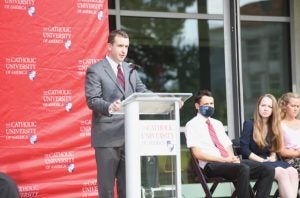
Before coming to the Hilltop, Murphy served as an associate dean of undergraduate admission and the director of military and veteran student services at the Catholic University of America (CUA) in Washington, DC. In his role, Murphy served as the lead admissions recruiter and student services point of contact for the military-affiliated population at CUA.
Murphy already has some familiarity with Georgetown’s military-connected community. While at CUA, he also worked as an adjunct instructor in the Hoya Battalion, teaching cadets the basic concepts that future field artillery officers need to master. Murphy also got to know the cadets outside of the classroom, rising at 5:45 a.m. twice a week to join them during their morning workouts.
“I truly believe that Georgetown can be the premier destination for military-affiliated students in higher ed, and I’m excited to get to work here to make that happen,” Murphy said.
A graduate of the United States Military Academy at West Point, Murphy served for six years on active duty as a field artillery officer, which included two tours in Afghanistan. After leaving active service, he has served as part of the Army Reserve since 2019.
Get to know what motivated Murphy to join the Army, his goals as director of MAVRC and how he hopes to connect with the military community at Georgetown.
Get to Know Stephan Murphy
Why did you want to join the U.S. Army?
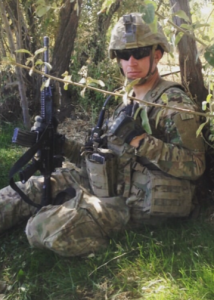
I am a third-generation soldier in the United States Army. My grandfather was a draftee in the Korean War era and my father [won] an officer’s commission by being a highly talented junior enlisted soldier.
The September 11 attacks occurred when I was a sixth grader. Even at that age, without fully conceptualizing all of the events leading up to it, I could still realize this was a key event, and I wanted to contribute in some way afterward. Combining that desire to serve plus the ability to completely finance my college education made the decision to either attend a service academy or participate in ROTC to be pretty clear-cut.
What motivates your work in higher education?
My first inspiration to join the industry came from, again, my parents. My mother was a higher education administrator working at both Princeton University and UPenn during my childhood and from observing her, I had my first exposure to how a university runs “behind the scenes.” In 2019, I was curious about transitioning out of active service and going to graduate school. Graduate school had been a lifelong goal of mine and I was excited to attend Syracuse University’s Maxwell School. As a student veteran, I was able to hold two grad assistant positions (one in Maxwell’s graduate admissions office and one in Syracuse’s athletic department). By living the student veteran experience firsthand, I became very interested in continuing to work in higher education as a professional.
I like the ability to work with students: there truly is nothing more rewarding than having that opportunity to coach, teach and mentor. Having the ability to work with the next generation is something that gets me excited to go to work in the morning.
Why did you want to work at Georgetown?
Georgetown University is one of the best, if not the best, destination for students in higher education. The academics are unmatched, but add in the location, our Jesuit tradition and the student support resources that we have here — this place is awesome. I believe that Georgetown can be the premier destination for military-affiliated students in higher ed, and I’m excited to make that happen.
What are your goals as director of MAVRC?
My vision centers on both the recruitment and retention of military-affiliated Hoyas. I want to set the conditions to grow enrollment within this student demographic — the more military connected Hoyas on campus, the better in my opinion! Just as important, I want to ensure high levels of student retention, because we want students to come to Georgetown and stay here until they graduate. We have to make sure we have all the support systems in place to make sure they’re able to succeed.
Another aspect of my vision is to build partnerships with both federal and private partners to help with our shared goals. We already have amazing private partnerships with organizations such as with the Warrior Scholar Project and the Tillman Scholarship and I want to see how many other great organizations we can build relationships with.
In terms of ROTC, we have three fantastic partner units within the Hoya Battalion , the Capital Naval ROTC Battalion and Air Force ROTC Detachment 130 and I want to make sure that we are setting the conditions for Hoyas to thrive and excel on their journeys to become Army, Navy and Air Force officers.
What do you want the Georgetown community to know about you?
I want to be known as a good team player, and I want to prove this with my actions more than my words. Every institution within higher education has a unique culture and student experience, and I want to quickly learn as much as I can about life here on the Hilltop. With that understanding, our collective passion for excellence and based on our shared expertise, we can find ways to improve the student experience from both a recruitment and retention perspective for our military-affiliated students.
The second piece is that I promise to be high energy: Being at Georgetown University is a destination job for me. I truly believe that God gives us amazing opportunities in our lives, and it is up to us on whether we live up to the moment or not. With this mindset, I want to make sure that I do the best that I can for the Hoya community during my time here and am very excited to get to work.
